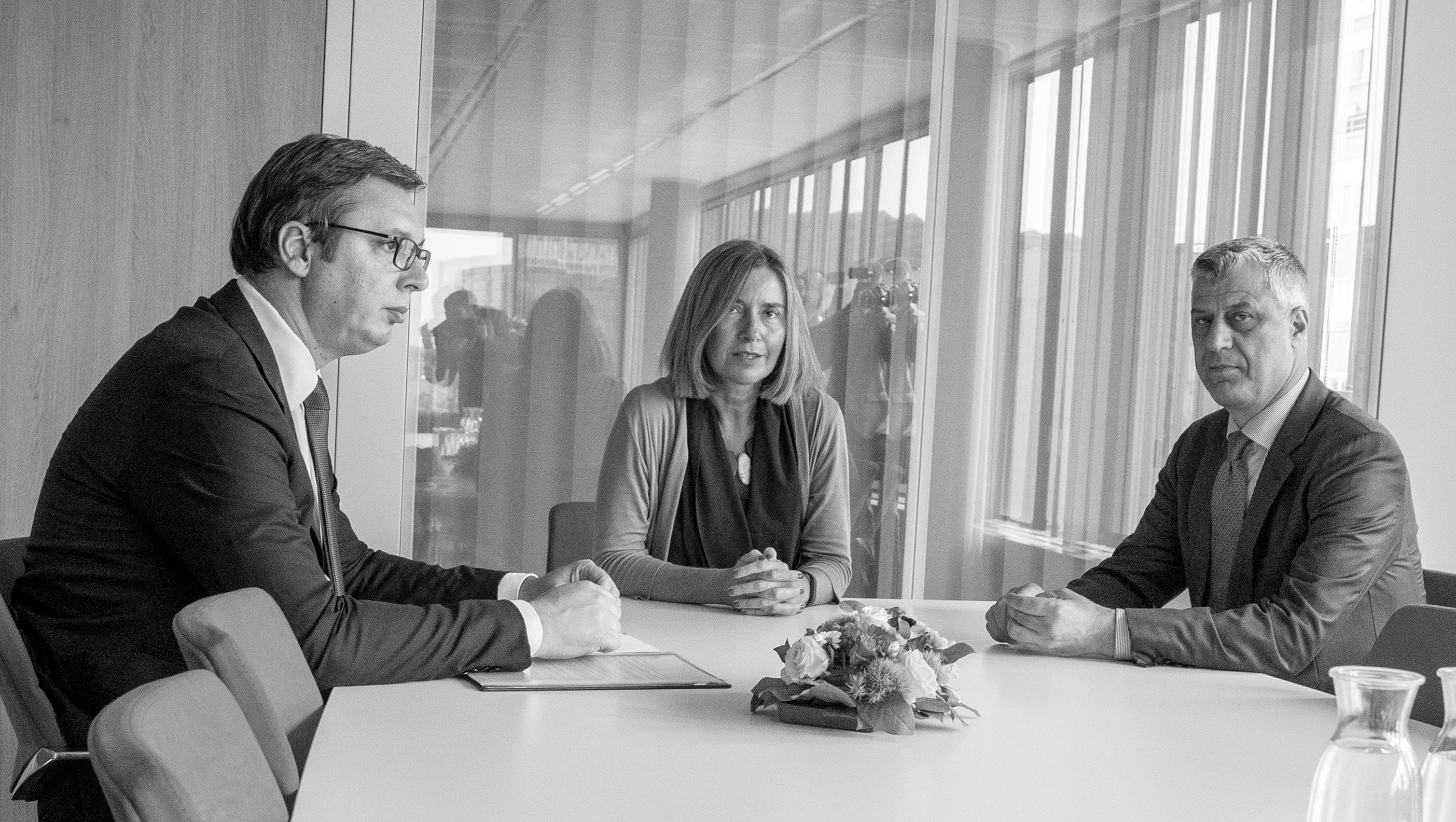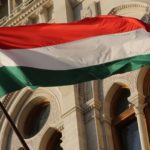By Srdjan Majstorović | Belgrade
The European Commission published its Country Report for Serbia in May 2019 assessing the country’s progress in the past year: it portrays a confusing picture of a country that is perceived as a frontrunner in the EU accession process, has been involved in accession negotiations since 2014, and which yet obviously lacks any drive to reform, ambition, capacities, and most importantly the results that could prove its advanced status.
Serbia lacks the crucial elements that democracy needs to draw upon: the rule of law and the protection of fundamental rights. The report speaks of an urgent need to create an environment conducive to cross-party dialogue, and invites the government and the ruling coalition to open up public dialogue with opposition parties on how to move on from a deadlock caused by the abuse of parliamentary procedures, abuses of office, lack of media freedom, violence against political opponents, threats and attacks against journalists and civil society organisations, and infringements of freedom of expression. How did Serbia get here?
When Serbia signed the Stabilisation and Association Agreement (SAA) with the EU in 2008 it caused a major political shift in its modern political history. The ratification of the SAA in the National Assembly was, among other internal issues, the reason for the split of the extreme nationalist Serbian Radical Party (SRP) and the creation of the Serbian Progressive Party (SPP). The SRP’s former deputy president Tomislav Nikolić and its secretary-general Aleksandar Vučić realised that without a comprehensive redefinition of their nationalist, anti-EU position, the party would never be able to win the elections, which until then had been dominated by a coalition of democratic pro-EU parties. Nikolić went on to win the presidential elections in 2012, and opened the door for Vučić to become Prime Minister (First Deputy PM 2012-2014, PM 2014-2017) and succeed him as President of Serbia (2017). The new government, riding on the tide of electoral success and with Vučić as its pivotal figure, managed to start EU accession talks in early 2014, consequently entering a new and decisive phase of Serbia’s Europeanisation.
The accession talks started under a new methodology. As in the EU’s previous waves of enlargement, Serbia is expected to fulfil the standard Copenhagen criteria and to secure the necessary institutional capacities to implement its obligations deriving from membership. Additionally, based on the lessons learned from previous waves of enlargement, the EU decided to emphasise the full implementation of the rule of law as a guarantee for the proper implementation of legislation that requires harmonisation with the EU acquis.
The new methodology stated that accession negotiations will start and finish with the assessment of the progress achieved by the candidate state in Chapters 23 (Judiciary and Fundamental Rights) and 24 (Justice, Freedom and Security). An independent judiciary, a fight against corruption and organised crime, and the protection of fundamental rights were defined as indicators of successful transformation and proof that the candidate state would be able to implement all the obligations deriving from successful EU membership.
In the case of Serbia’s EU accession process, the normalisation of relations with Kosovo plays a specific role. The EU requests all candidates to resolve any pending bilateral issues before their actual accession to the club. Serbia is expected to reach a legally binding agreement on comprehensive normalisation with Kosovo before the end of the accession talks. The definition of ‘comprehensive normalisation’ was left to both sides to agree upon within the dialogue moderated by the High Representative for Common Foreign and Security Policy. The EU’s negotiation framework stated that implementation of the agreements reached between Belgrade and Prishtina would be monitored within Chapter 35 (usually called ‘Other issues’).
Another novelty introduced with the new methodology was the so-called ‘imbalance clause’, which states that in case of a lack of progress in Chapters 23, 24 and 35, the EC or one-third of EU member states can propose a ‘withholding’ of accession talks. The set of opening, interim and closing benchmarks was envisaged in order to monitor the implementation of the candidate’s obligations in these three chapters.
At this moment Serbia has opened seventeen negotiation chapters and provisionally closed two. The dynamic of accession talks is slow, and it has been influenced both by the lack of substantial efforts by Serbia, as well as the lack of interest in the EU enlargement process among some member states. Due to the intergovernmental nature of the accession talks, consensus is obligatory for any decision with regards to opening or closing particular negotiation chapters.
The rise of authoritarian tendencies and democratic backsliding
When the European Commission was formed in 2014 with Jean-Claude Juncker as its President, he stated an obvious fact: that there would be no enlargement of the EU during his mandate. It was noted at the time that this was a declaration of “abstention from responsibility” towards the Western Balkan aspirants.
It certainly did not help to motivate the Western Balkan leaders, including the so-called frontrunners (Montenegro and Serbia) to keep their focus on the EU accession-led reforms and the badly-needed process of democratic transition.
On the contrary, it unintentionally contributed to the rise of authoritarian tendencies and democratic backsliding, and opened the doors for other parties to offer alternatives to the EU integration process. The alarming effects of the lack of perspective for the Western Balkan countries led the European Commission to make an attempt to set out a credible EU path for these countries.
In 2018 the Commission published its Communication on a Credible Enlargement Perspective for and Enhanced EU Engagement with the Western Balkans. The Communication set the scene for the relationship between the candidates and the EU, proposing a different set of tools in order to increase the credibility of both sides. Unfortunately, the Communication’s setting 2025 as the year for the potential accession of those Western Balkan frontrunners who meet the required conditions was the detail that caused the member states to give it a lukewarm reception at the Council meeting in June of the same year.
This drew attention away from otherwise its bold and ambitious proposals on how to create a credible and sustainable relationship with the Western Balkan states. Earlier, in May, the European Council Presidency under Bulgaria organised the first EU–WB summit since Thessaloniki 2003. However, instead of resetting and restarting the accession-driven relationship, the rather inconsequential Summit came and passed, burdened by international developments and domestic topics in the member states.
President Macron’s statement that the EU needs to reform itself before undertaking any enlargement had a sobering effect after the EC’s February Communication. Macron’s statement was a kind of warning shot before the 2019 European Parliament elections. Whether it was just a tactical pre-election move to counter populist pressure or a long-term strategy towards the potential newcomers remains to be seen.
A toxic atmosphere of ‘us’ vs ‘them’
This is the context in which Serbia has been pursuing its place in the EU. An obvious lack of ‘pull’ from the EU has been causing a lack of a stronger and more credible ‘push’ for changes in Serbia. It seems that the official slogan of Serbia’s EU accession, ‘We are doing this for ourselves’, is losing its lustre due to the lack of tangible results.
Serbia is facing a couple of major challenges in the process of EU integration, and it is important to note that all of these challenges are equally important for the sake of Serbia’s EU accession and its full democratisation.
One of the major challenges is the unconstitutional centralisation and concentration of power in the hands of the President and his coalition, which are paralysing governance. Parliament has become an extension of the executive branch, and has completely lost its constitutional role of overseeing the work of the government.
Conditions in parliament have deteriorated so much that opposition representatives have been deprived by the ruling coalition’s representatives of the possibility to participate in debates by systemic obstruction and abuse of the rules of procedure. The political system has been based not on rules and procedures, but on informal relations between different interest groups. Constitutive elements of the ‘captured state’ model are present.
As a consequence, the opposition has decided to leave parliament, and has called for a joint commission to redefine the electoral system and elect new members of the public broadcasters and the regulatory body for electronic media.
Unfortunately the lack of public debate and dialogue between the ruling coalition and opposition, followed by hate speech and fearmongering coming from the media (whose editors or owners have close ties to the ruling parties), has contributed to dangerous levels of division among the citizens. A toxic ‘us’ vs ‘them’ atmosphere has led to physical violence against opposition leaders, which triggered six months of public protests across the country.
Secondly, Serbia is facing serious challenges in the area of rule of law. Securing judicial independence, the fight against corruption and the protection of fundamental rights should be in the focus of a frontrunner state which aspires to EU accession.
Constitutional amendments to enhance the independence of judges which should have been adopted by the end of 2017 are still pending. Serious concerns have been expressed by the professional judges’ and prosecutors’ organisations that the Ministry of Justice’s proposed amendments will not be sufficient to provide more independence in their appointment and work.
Informal ties, selective application of legislation, clientelism and overt pressure on the judiciary from politicians (who make public comments on particular cases) are often seen. Three years after opening the negotiations on Chapter 23, the interim benchmarks have still not been fulfilled.
The European Commission notes that “some progress” has been made since the start of accession talks; the problem is that this progress is more technical and formal in nature, and has hardly any reflection in the actual behaviour and language of political leaders, judges, and prosecutors. The legislative framework has been adopted, and to a certain degree it has been harmonised with established practice within the EU member states, but it is being implemented only selectively.
The Kosovo saga
Another important challenge for Serbia’s EU accession process is the normalisation of relations with Kosovo. Despite the agreement reached in 2013, the implementation of particular parts of the agreements is still pending (such as aspects concerning energy, and the Community of Serbian Municipalities).
Kosovo’s Serbs feel frustrated by the failure to implement the agreement which guaranteed them the formation of the Community of Serbian Municipalities, while Kosovo’s Albanians feel frustrated by the inability to join international organisations unhindered by Serbia’s diplomatic efforts, as well as by the delays from Brussels in allowing its citizens visa-free travel (despite the European Commission’s opinion that Kosovo has met all the required conditions).
The tensions culminated in November 2018 when the Kosovo government introduced 100% tariffs on goods imported from Serbia following Serbia’s lobbying against Kosovo joining Interpol. This led to the suspension of dialogue, despite efforts by the EU, Germany, France, and the US to influence Prishtina’s decision to at least ‘suspend’ the taxes, in order to create conditions to restart the dialogue.
There is still a long way to go before relations between Kosovo and Serbia are normalised. Mistrust and fear linger in both communities. The two presidents announced their intention to reach a comprehensive agreement that would allegedly imply the demarcation/exchange of territories and people, although it is difficult to say what exactly they had in mind, because the whole negotiation process was kept out of the public eye. While understanding that diplomacy, especially on such a complex issue, requires confidential meetings and dialogue, the lack of democratic legitimacy for these negotiations is the major obstacle to the normalisation of relations between the two communities.
We can speculate what the topic of the two presidents’ meetings was, but it goes without saying that ideas such as swapping territory and people would garner hardly any public support in either of the countries. In the worst-case scenario, it would awaken the ghosts of the 1990s and revive nationalistic sentiments throughout the region, which would certainly lead to disaster. Furthermore, the atmosphere in both societies is not at all favourable to a long-term, sustainable rapprochement.
The fourth major challenge for Serbia is demonstrating its unambiguous support for the principles of the EU’s Common Foreign and Security Policy (CFSP). In 2018, according to reports, Serbia aligned its foreign policy stances with only 28 out of 54 declarations (52%). The majority of the cases where Serbia failed to align its position with the EU are related to sanctions against Russia. This attitude causes confusion and doubts among some EU member states regarding Serbia’s commitment to the same foreign policy goals, and has raised questions over how Serbia would behave as a member state.
Unfortunately, Serbia’s position is a by-product of the unresolved Kosovo issue. Russia, as a permanent member of the UN Security Council whom many Serbs perceive as a traditional ally, has enjoyed special treatment from Serbian governments and by the Serbian public as well.
The two nations’ common Christian Orthodox identity also plays an important role. Being at the receiving end of Russia’s gas supply, Serbia has limited room for manoeuvre in its foreign policy. The interconnection with the EU member states’ alternative gas supply pipelines is still in the planning stage, which is not exclusively Serbia’s fault.
This relationship is based on realistic and utilitarian grounds on both sides.
Serbia is traditionally a Western-oriented country: around three-quarters of its global trade is conducted with the EU and EU-aspiring CEFTA countries; the EU is the largest donor of development assistance, and EU member states’ companies are the biggest investors in Serbia.
Additionally, while respecting their mutual Slavic origin, citizens of Serbia prefer to live, work and to be educated in EU member states rather than in Russia.
Russia seems to be fully aware of this. It is simply using Serbia to retain its vested interest in a region that is historically important for Europe’s stability. This enables Russia to remain an important geopolitical power in Europe with the ability to influence Europe’s agenda. Providing a clearer and more tangible prospect for EU accession will contribute to Serbia’s ability to resist outside pressures more strongly.
How to move forward?
This year’s EC Report proves the limits of the EU’s conditionality policy once the two sides of the same coin, democratisation and the Europeanisation process, have been decoupled. While a candidate country formally progresses, even slowly, towards EU membership, it starts to backslide on the Copenhagen political criteria. Conditionality loses its grip when the result of the EU integration process is less tangible, and the partners lose their credibility. Conditionality as a strategy makes it hard to provide results when the receiving partner fails to recognise the gains from it. If the costs of adjustment are too high for the incumbent elite, the motivation for change is difficult to obtain.
It is obvious that the future will bring new challenges. The new composition of the European Parliament, the new leadership and members of European Commission and the future of EU’s enlargement policy will seriously challenge Serbia’s political will and stamina to become a candidate which is fully legitimate and ready for accession. Serbia needs to recognise the new opportunity to rethink, reset, and restart its EU accession agenda.
In order to prove its credibility, Serbia will have to improve its record and respect the rule of law, i.e. the independence of the judiciary, the fight against corruption, the clear division of powers and the protection of fundamental rights. To prove its capacity to meet the EU’s membership criteria, Serbia will need to devote special attention to improving the role of Parliament as a place for dialogue with opposition parties, and to enable its scrutiny over the executive branch, something which is currently non-existent.
Special emphasis will have to be placed on removing or preventing impunity in high-level corruption cases as the test of the country’s unambiguous political will to build and sustain the rule of law. Freedom of expression and the independence of the media need to be fully respected as guardian principles for a sound and functioning democracy.
The second point where Serbia needs to prove its credibility is dialogue with Kosovo and reaching an agreement on comprehensive normalisation. We need to be realistic and go back to the EU’s General Position as presented at the opening of the accession negotiations with Serbia (Negotiation Framework, Principles governing the negotiations, point 23), which says that Serbia will have to reach a legally binding agreement “by the end of Serbia’s accession negotiations”.
Obviously, it would be a remarkable success to reach an agreement sooner rather than delay it till the end of the accession talks. But it would be wrong to rush both sides into reaching an artificial solution that lacks legitimate support from the citizens and raises concerns in the region which could have potential repercussions. Before any agreement is finally reached, the two communities’ leaders need to make honest efforts to bring their two communities closer. Any potential agreement needs to recognise the need for (European) integration rather than the separation of the two communities.
Political leaders need to drastically revise their public language and messages, from fearmongering to promoting hope and a common future. There will be no better recommendation for Serbia as a potential new EU member state than the resolution of this complex issue.
The third point in proving Serbia’s credibility is recognising the importance of regional cooperation and integration. Obviously, Serbia cannot do this alone, but only as a joint effort with other Western Balkan countries.
Instead of pretentious slogans and claims to a position of leadership in the region, honest efforts are needed to address issues of common concern and interest: economic convergence, the development of social capital through better education and more social inclusion, gender equality, slowing the brain-drain, combatting informal migration, taking measures on environmental protection and climate change, sustainable energy security, common infrastructure and connectivity.
These issues will not be successfully addressed without regional cooperation and the integration of common capacities. Stronger cooperation will demonstrate the region’s capacity to work together and prove its capability to behave like a true future EU member states.
It takes two to tango
It usually takes two to tango, but it also takes 28 member states (still) to reach consensus on the accession of every newcomer and candidate which meets the required conditions. After the European Parliament elections, it is not realistic to expect that EU enlargement policy will be among the new European Commission’s top priorities. The efforts that were invested in 2018 in promoting credibility as the cornerstone of new relations with candidate countries will most probably prove inadequate. The first test was the Council’s decision in June to start accession talks with Northern Macedonia and Albania “no later than October 2019”.
The EU’s enlargement policy will continue, but it will be conducted far from the public eye, under the radar. This approach is fundamentally wrong, and it might cause difficulties in providing legitimacy and public support for the accession of future candidates. It will provide a perfect narrative for third parties which are offering Serbia and the rest of the region alternative governance models and are undermining EU’s strategic autonomy. It will portray the EU as a weak player in international relations which struggles to address important issues within the realm of its own boundaries. Certainly, it would not help the EU to regain its self-confidence and support its efforts to establish itself as an important international actor.
It is important that the new European Commission has a member who will be the face and have the ‘phone number’ in Brussels, and who will be mandated to do the task of expanding the EU to include the Western Balkan countries.
It is not just a matter of form; it is more about setting policy priorities, enabling resources, public messaging, and the ability to make the best use of the enormously important administrative memory about the process which the previous expansions have provided. The political symbolism of having a Commissioner for the Western Balkan countries should not be neglected.
The EU must find a new role for itself in the realities of today’s world. A redefinition of the Union as we know it is needed; but this should be conducted in parallel with the definition of its borders and the accession of the Western Balkan countries as important pieces of the EU puzzle.
The EU and the Western Balkans are inseparably tied together with regard to their future strategic relations, concerning common critical infrastructure, connectivity, energy, environmental protection and climate change, migrations, security and resilience to third parties’ interests in Europe.
This requires closer cooperation with and the inclusion of the Western Balkans in EU policymaking cycles. These countries need to be recognised as important partners and future members. Their inclusion and participation will contribute to the better understanding of the EU’s functioning and prepare them for membership, and will finally provide a credible pooling effect regarding their transformation process.
The EU should also invest more resources in economic and social convergence, as well as in building up the absorption capacities in the Western Balkans. These investments should provide more visibility for the EU in the region and prove that the EU is a major contributor to Serbia’s (and the region’s) development. One of the aims of the EU’s stronger investment role should be to send a message to countries like Turkey, Russia, China and some Gulf states who are currently actively seeking investment opportunities in projects dedicated to the future construction of the EU’s critical infrastructure. Earlier exposure to the EU’s structural investments will help Serbia prepare its absorption capacities on time as well.
All the preconditions mentioned above will require serious political will on both sides. The EU’s member states will have to recognise the importance of the Balkans for the EU’s strategic autonomy in the future and its role in world affairs.
Serbia will have to be honest with itself, improve its track record, and rethink and reset its EU integration approach in order to make it less centralised, more inclusive, transparent, substantive and efficient; it must also learn how to communicate with the public in a better way. That should not be mission impossible – it just requires a brave vision, and leaders who will promote hope in a European Serbia and a better Balkans.
SRDJAN MAJSTOROVIĆ, is chairman of the Governing Board of the European Policy Centre (CEP, Belgrade) and member of the Balkans in Europe Policy Advisory Group (BiEPAG).
Read more:





